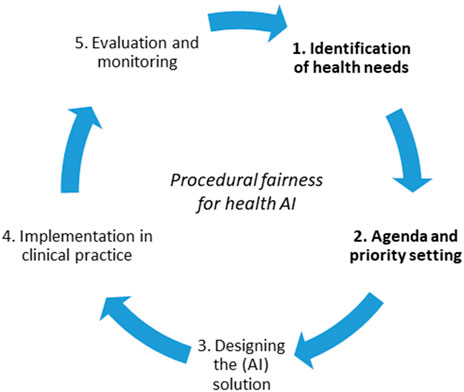In the realm of modern healthcare, the utilization of health data holds immense potential for revolutionizing research, diagnostics, and patient care, yet the journey towards harnessing this invaluable asset is intricately entwined with challenges, prominently including those related to AI-driven Health Data Privacy. In a groundbreaking exploration, the Norwegian Centre for E-health Research sheds light on the paradigm-shifting role of Artificial Intelligence (AI) in safeguarding health data privacy. Through the adoption of privacy-enhancing technologies, such as federated learning and synthetic data, a new frontier emerges, promising both secure access to sensitive health information and unparalleled advancements in healthcare delivery.
The role of federated learning in healthcare
At the forefront of the privacy protection revolution stands federated learning, a pioneering approach in machine learning. By allowing analysis of data directly within its storage location, federated learning circumvents the risks associated with data sharing and exposure. This transformative technology not only ensures enhanced privacy but also facilitates the analysis of vast and diverse datasets, transcending geographical and organizational boundaries. However, challenges such as data format disparities and heightened communication system requirements underscore the imperative for robust security measures and interoperability standards.
Also, federated learning fosters a collaborative environment where diverse stakeholders can pool their resources without compromising individual data sovereignty. By enabling decentralized model training across disparate healthcare entities, federated learning promotes knowledge sharing while safeguarding the privacy rights of patients and healthcare providers alike. Nevertheless, the scalability and interoperability of federated learning frameworks remain areas ripe for further innovation and standardization.
The potential of synthetic data in healthcare research
In parallel, synthetic data emerges as a beacon of privacy-preserving innovation in healthcare. Through the generation of artificial datasets mirroring real-world statistics, synthetic data offers a pragmatic solution to the scarcity of authentic training data while mitigating privacy risks. By upholding the anonymity of individuals while preserving data utility, synthetic data empowers researchers to develop machine learning models with unprecedented scope and efficacy. Nevertheless, the adoption of synthetic data necessitates rigorous validation and ongoing refinement to address inherent biases and ensure alignment with real-world data dynamics.
At the same time, synthetic data holds the promise of democratizing access to diverse datasets, thereby fostering a more inclusive and collaborative research ecosystem. By synthesizing data from disparate sources and populations, researchers can mitigate biases inherent in traditional datasets, paving the way for more equitable and generalizable healthcare solutions. However, concerns regarding the accuracy and representativeness of synthetic data underscore the need for continuous validation and refinement to ensure its reliability for real-world applications.
Cultivating excellence and integrity through AI-driven health data privacy
As the healthcare landscape continues to evolve, the convergence of AI-driven Health Data Privacy presents both unparalleled opportunities and formidable challenges. In harnessing the potential of federated learning and synthetic data, stakeholders must navigate the intricate interplay between innovation, privacy, and data security. Yet, amidst these complexities lies a pressing question: How can we cultivate a robust ecosystem of privacy-enhancing technologies to propel healthcare into a future defined by both excellence and integrity?
In this dynamic landscape, collaboration and continuous innovation will be paramount, as stakeholders work towards striking a delicate balance between leveraging the transformative power of AI-driven Health Data Privacy and safeguarding the fundamental rights of individuals. As we embark on this journey, the quest for excellence and integrity in healthcare remains not only a goal but also an ethical imperative for the collective well-being of society.





